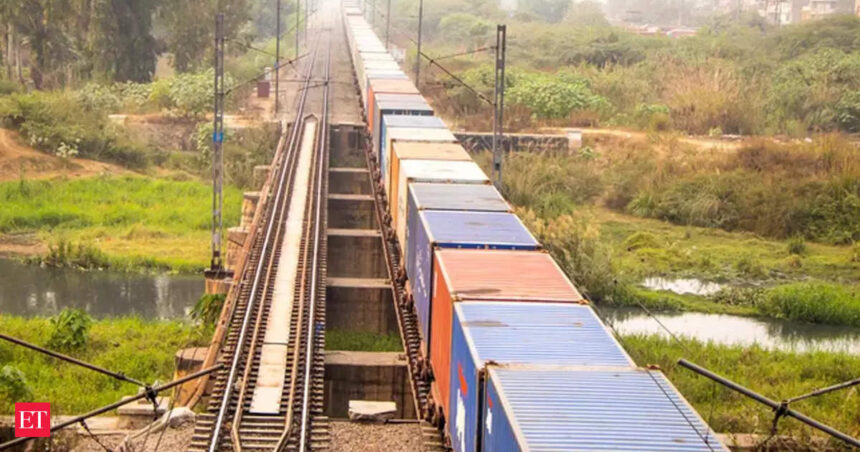India’s current Dedicated Freight Corridors (DFCs) are projected to contribute Rs 16,000 crore to the country’s gross domestic product, according to a study conducted by the University of New South Wales based in Australia. The study, shared by the Dedicated Freight Corridor Corporation of India Limited (DFCCIL), revealed that the operationalisation of the Western DFC (WDFC) has led to a reduction in freight costs and travel time, resulting in a reduction of commodity prices by up to 0.5%.
Furthermore, the study indicated that the DFC has contributed to 2.94% of the revenue growth witnessed by Indian Railways between FY 2018-19 and FY 2022-23. Currently, over 10% of freight transportation on Indian Railways is handled by DFC.
The study emphasized that the introduction of the DFC has brought about overall national economic benefits, with the greatest advantages being observed in western regions closest to the DFC due to significant reductions in freight costs. Additionally, regions further away have also experienced economic benefits from decreased transportation costs, with states having a lower per-capita GDP benefiting significantly.
The DFC project, spanning 2,843 kilometers and passing through 56 districts in seven states, is 96.4% complete as of October 2024. The Eastern DFC (EDFC) spanning 1337 kilometers from Ludhiana to Sonnagar is fully operational, while the Western DFC spanning 1506 kilometers from Dadri to Mumbai is 93.2% complete.
According to DFCCIL, the EDFC is fully operational with feeder routes connecting to various coal mines and thermal power plants, while the WDFC is nearing completion with feeder routes servicing cement plants and major ports in Gujarat. Currently, an average of 325 trains run daily on the freight corridors, marking a 60% increase compared to last year.










